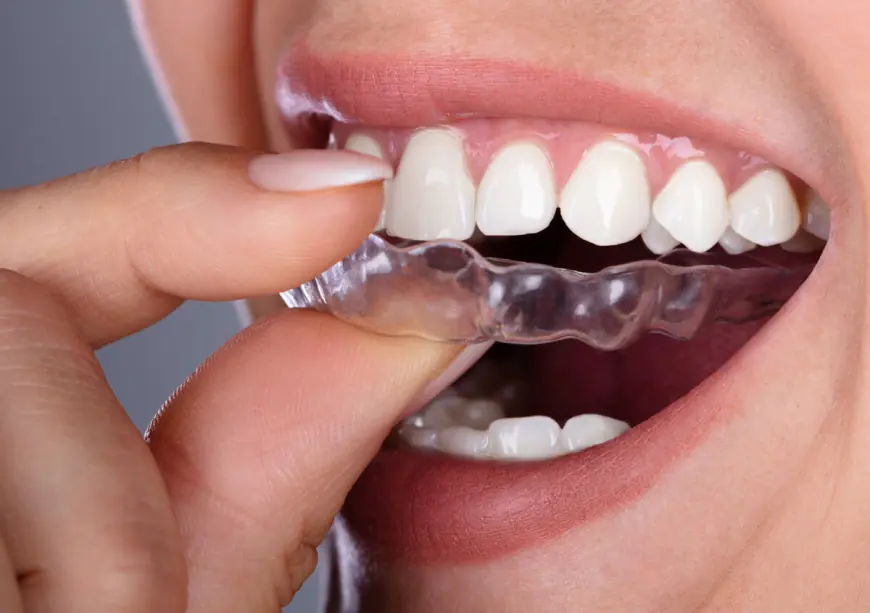Why Is Preventive Dental Care Important for a Healthy Smile?
Learn how preventive dental care protects your smile and overall health. Explore essential tips, including cleanings, exams, and night guards for teeth.

Keeping your teeth and gums healthy requires regular attention. Preventive dental care helps you avoid dental issues before they start. This care includes routine cleanings, exams, and protective treatments. By maintaining these habits, you can prevent cavities, gum disease, and other problems. Simple steps like daily brushing, flossing, and regular dental visits can protect your oral health for years. Understanding these preventive measures ensures a healthier smile and fewer dental visits in the future.
What Does Regular Dental Maintenance Involve?
Regular dental maintenance focuses on habits and professional treatments that keep your mouth healthy. These steps help detect and prevent issues early.
Regular Dental Cleanings and Check-Ups
Visiting the dentist every six months allows for thorough cleanings and exams. Professional cleanings remove plaque and tartar that daily brushing can miss. Exams help catch problems early, preventing more serious issues later.
Daily Brushing and Flossing Habits
Brushing twice a day and flossing once daily are essential. These habits remove food particles and plaque, reducing the risk of cavities and gum disease. Using fluoride toothpaste also helps strengthen enamel.
Dental Sealants and Fluoride Treatments
Sealants protect back teeth from decay by covering grooves where bacteria hide. Fluoride treatments strengthen teeth, making them more resistant to cavities. Both treatments are quick and painless.
Key Benefits of Prioritizing Your Oral Health Routine
Investing in preventive care has long-term benefits for your oral health and overall well-being. These practices can save you time, money, and discomfort.
Reduces Risk of Cavities and Gum Disease
Regular care removes harmful plaque and bacteria. This reduces the chance of cavities and gum infections. Early detection of problems also makes treatment simpler and less painful.
Saves Money on Future Treatments
Preventing dental problems is more affordable than fixing them later. Routine cleanings cost less than fillings, root canals, or crowns. Investing in preventive care saves money over time.
Maintains Overall Health
Good oral health supports overall health. Poor dental hygiene can lead to infections, heart disease, and diabetes complications. Preventive care helps protect your whole body.
The Role of Nutrition in Preventive Dental Care
Your diet plays a significant role in maintaining healthy teeth and gums. Choosing the right foods supports strong teeth and reduces decay risk.
Eating Calcium-Rich Foods
Calcium strengthens teeth and bones. Foods like dairy, leafy greens, and almonds provide essential calcium. Including these in your diet helps maintain strong teeth.
Limiting Sugary and Acidic Foods
Sugary and acidic foods cause cavities and enamel erosion. Limit candies, sodas, and citrus fruits. Rinse your mouth with water after consuming these to reduce damage.
Drinking Plenty of Water
Water helps wash away food particles and bacteria. Fluoridated water also strengthens enamel. Staying hydrated supports a healthier mouth and reduces decay risk.
Preventive Measures for Protecting Your Teeth at Night
Nighttime habits play a big role in maintaining dental health. Protecting your teeth while you sleep helps prevent damage and decay.
Wearing Night Guards for Grinding
Teeth grinding, or bruxism can damage your teeth over time. Custom night guards for teeth protect against wear and prevent jaw pain. These guards are comfortable and effective.
Using Fluoride Rinses Before Bed
Fluoride rinses strengthen enamel while you sleep. Using a rinse before bed helps protect your teeth from decay. It’s an easy addition to your nighttime routine.
Avoiding Late-Night Snacks
Eating before bed increases the risk of cavities. Food particles stay on your teeth overnight, feeding bacteria. Brushing before bed and avoiding snacks helps keep teeth healthy.
Essential Oral Health Tips for Children’s Smiles
Starting good dental habits early sets the foundation for lifelong oral health. Preventive care for children focuses on education, cleaning, and protection.
Regular Pediatric Dental Visits
Children should see a dentist by their first birthday. Regular check-ups ensure their teeth are developing correctly. Early visits also help kids feel comfortable at the dentist.
Teaching Proper Brushing Techniques
Show children how to brush and floss correctly. Supervise brushing until they can do it well on their own. Fun toothbrushes and toothpaste can make the process enjoyable.
Protecting Teeth with Sealants
Dental sealants protect children’s back teeth from decay. This simple procedure reduces the risk of cavities. Sealants are especially helpful for kids who struggle with brushing.
How to Choose a Dentist for Preventive Care
Finding the right dentist ensures you receive quality care. Consider these factors when choosing a dental provider for your family.
Look for Experience and Credentials
Check the dentist’s qualifications and years of experience. A skilled dentist offers comprehensive preventive care and makes patients feel at ease.
Check Patient Reviews and Testimonials
Reading reviews gives you insight into the dentist’s care quality. Positive feedback on friendliness, professionalism, and effectiveness is a good sign.
Consider Office Location and Hours
Choose a dentist with convenient office hours and location. Easy access to care makes regular visits simpler to maintain.
Conclusion:
Good oral health starts with consistent preventive dental care. Regular check-ups, cleanings, and daily habits protect your teeth and gums. This proactive approach helps prevent cavities, gum disease, and costly treatments. Adding protective measures like night guards for teeth ensures long-term dental health. Invest in preventive care today to enjoy a healthier, brighter smile for years to come.
What's Your Reaction?
 Like
0
Like
0
 Dislike
0
Dislike
0
 Love
0
Love
0
 Funny
0
Funny
0
 Angry
0
Angry
0
 Sad
0
Sad
0
 Wow
0
Wow
0



















































